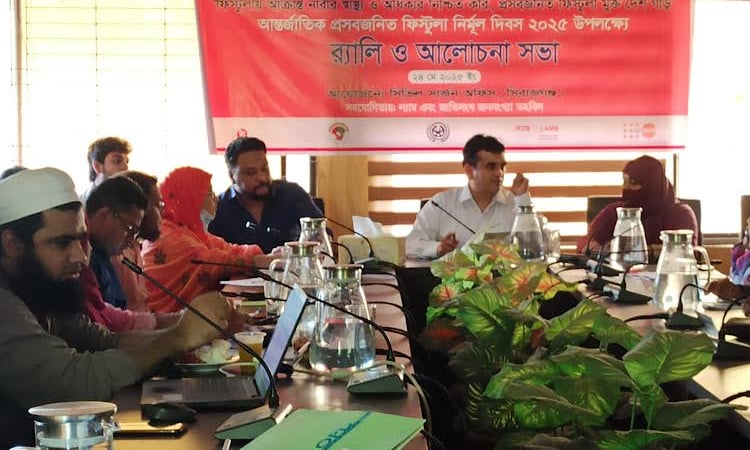News Flash
News Flash

SIRAJGANJ, May 25, 2025 (BSS) - Raising awareness and ensuring early detection, particularly in remote and hard-to-reach areas, are vital to prevent and mitigate obstetric fistula - a serious childbirth-related injury, experts told a meeting.
They also noted that early identification of patients suffering from obstetric fistula is vital for timely treatment and rehabilitation, as both government and non-government organizations are actively working in this field.
Health experts and development activists made these remarks at a discussion meeting at the conference hall of the Civil Surgeon's office on Saturday.
LAMB, a health and development NGO, as part of implementation of its FRRei project organized the meeting in collaboration with the United Nations Population Fund (UNFPA) to mark the International Day to End Obstetric Fistula 2025, observed on May 23.
Earlier, the NGO conducted a month-long campaign to identify fistula patients in Raiganj upazila of the district.
The theme for the day this year is "Her Health, Her Right: Shaping a Future without Fistula" highlighting the fundamental right to health, particularly sexual and reproductive health, for all women and girls, and the importance of eliminating obstetric fistula.
Civil Surgeon Dr Nurul Amin, Medical Officer Dr Riazul Islam, UNFPA Field Officer Dr Kaniz Fatema and LAMB District Facilitator Ruhul Amin Mridha addressed the meeting.
In his speech, Civil Surgeon Dr Nurul Amin said obstetric fistula is one of the most serious and tragic childbirth injuries. It is caused by prolonged, obstructed labor without timely access to quality medical care and results in a hole between the birth canal and the bladder and/or rectum.
"This condition causes incontinence, often leading to chronic health issues, depression, social isolation, and deepening poverty," he said.
He further emphasized that obstetric fistula is entirely preventable with proper medical support and that its continued occurrence is a stark reminder of persistent inequalities.
During her concept paper presentation, Dr Kaniz Fatema outlined the objectives and expected outcomes of the campaign. She also provided an overview of obstetric fistula, its causes, and both preventive and curative measures.
Participants, including health and family planning staff and field workers, were urged to carry out their responsibilities with sincerity and dedication to help ensure all fistula patients are identified and brought under treatment and rehabilitation programmes.